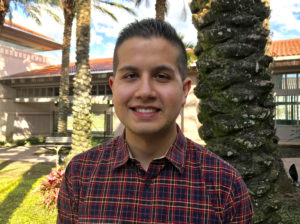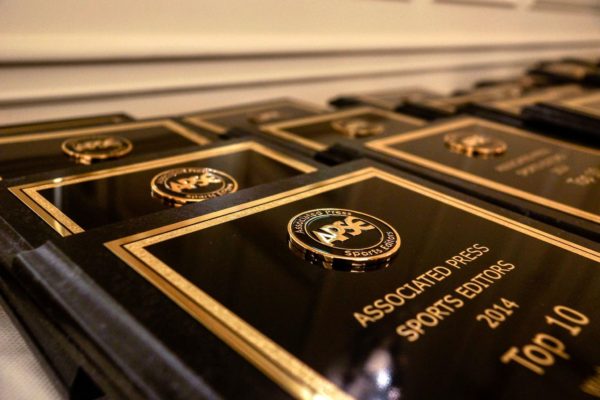By Erik Hall
Erik Bacharach covers Middle Tennessee State University athletics for USA Today Tennessee.
 What made you interested in sports journalism?
What made you interested in sports journalism?
Erik Bacharach: I always loved writing, and that was sort of where my passion was before journalism or sports journalism or any of that. Before I wanted to get into journalism at all, I was interested in screen writing. That was where my interest was as probably a freshman and sophomore in college. I just decided to join the local, college newspaper (Pipe Dream). It was my freshman year. Give it a try, and it kind of took off from there. I started to fall in love with reporting and just sort of that side of things. It obviously still allows me to write.
In sports journalism, I’ve always felt it allows a little bit more room for creativity than maybe news is what I’ve always found. It kind of just seemed like a natural fit.
I think it was in 2010, what prompted me to want to join the paper was just I wanted some outlet to write about the Knicks going after Carmelo Anthony. That was a big thing at the time. I had moved from Long Island to Binghamton (University), where I went to college.
I felt sort of away from home and away from everything that was happening. I just wanted to write about it, and the school newspaper gave me a chance to do that.
Why did you want to be a diversity fellow?
EB: I was really drawn to the sort of leadership aspect of what the fellowship offers. The chance to sort of see how a sports department is run. The ins and outs and all of that stuff. That was big.
I do still want to be a writer and reporter. That’s still what I’m pursuing right now.
With that being said, I don’t really want to shut that sort of door closed as far as maybe becoming an editor somewhere down the line. That’s something that will always be open.
But even more than that, it was just the diversity part of the fellowship. My mother is Ecuadorian. My father is Jewish. I’ve been diverse, obviously, all of my life, but I’ve felt different all my life. I really just sort of identify with what it means to be someone who is diverse.
Just a program, a fellowship that sort of puts that up and really values that was something, to me, that I identified with, and it’s something that was important to me.
I do think that there’s not a whole lot of diversity in our industry. To me, it’s something that, really, I identify close with. Honestly, more than being Hispanic or Jewish, I just identify with being diverse.
What did you take from the diversity weekend in Nashville?
EB: Probably, the biggest thing I took … was just having a lot of comprehensive conversations with people that have been doing this a lot longer than I have — sort of talking about their careers and my career — and I just really like getting in conversations like that with people who are much further along than I am that I respect that sort of have, obviously, a lot more experience and kind of just picking their brain.
I got a lot of opportunities to do that during diversity weekend, and I think I really took a lot from each conversation with everyone I spoke to.
What’s your greatest professional achievement
EB: It doesn’t have anything to do with awards or anything like that.
It’s probably just taking a job in Alabama, you know, being from the New York City area. I left for Alabama in April of 2016, which was a hard thing to do, obviously. It’s a big culture shock, and it’s part of this job and people do it all the time. For me, I’d never really left New York, so that part of it was hard.
Getting the job and, I think, doing well in that setting, where I was unfamiliar with anything down there — 1, 000 miles from my family and all that. I think sort of just succeeding down there and doing a good job, I think, is still the biggest thing to me just because of how it was a rough transition, and if somebody back in New York asks me what I thought and if I’d recommend it, I’d probably say no.
It worked out for me.
One caveat I would say is, if you’re really 100 percent committed, then sure, go for it. I don’t think location should matter. But if you’re at all on the fence, it’s just so much to sort of leave behind. Going from a New York City-type place to rural Alabama, it was tough, so I do give myself a lot of credit for that.
Who is someone or some people that have helped you grow in your career?
EB: One has definitely been Dana Sulonen. She hired me at the Opelika-Auburn News. She took a chance on me there, and I couldn’t ask for a better boss down there.
She was a great editor, great at being organized. … She was someone that, working alongside, I think she brings out the best in you just because of how hard she works. That’s something that’s just contagious. You see somebody working beside you so hard, and you feel like you’ve got to keep pace. …
Obviously, she had something to say about me coming here because she was the sports planner here (with USA Today Tennessee) when I was interviewing for the job, when I took the job here. So she’s been huge for my career.
Who is your dream interview?
EB: Probably, Carl Sagan. He’s the astrophysicist who died, probably, 20 years ago now, a professor at Cornell. He’s always just been at the top of my list of most influential figures for the way he brought the cosmos and all that — he brought it down to a level that the layman could understand.
I think an interview like that would be — obviously it’s not possible — but that would be my dream interview. Someone like that. Someone who influenced the way that I think and view the world. That would probably be my dream interview.





